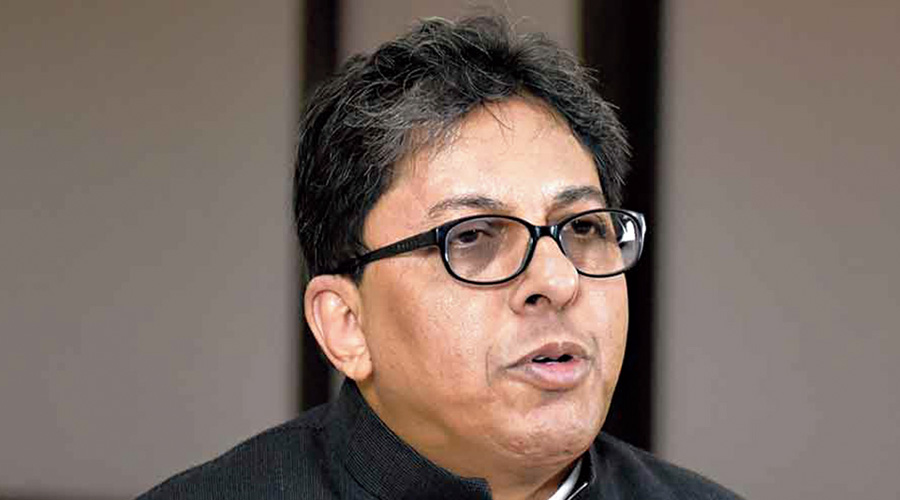The Supreme Court on Thursday ruled that former Bengal chief secretary Alapan Bandyopadhyay would have to appear before the Central Administrative Tribunal’s Delhi (principal) bench instead of Calcutta as decreed earlier by the Calcutta High Court.
Striking down the Calcutta High Court order allowing Bandyopadhyay to appear in Calcutta for his trial before the tribunal, the apex court stated that the Calcutta High Court (and other high courts of the country) cannot override a decision of the tribunal’s principal bench.
Bandyopadhyay, one of the most trusted officers of Mamata Banerjee, was caught in the eye of a political storm involving his immediate boss, the chief minister, and the Prime Minister, who heads the Union government that recruited the 1987 batch IAS officer.
Barely three days before he was due to retire, Bandyopadhyay fell foul of the Centre having skipped a meeting on the Yaas cyclone called by the Prime Minister Narendra Modi at Kalaikunda on May 28 last year. Bandyopadhyay, along with the chief minister, was on tour to the cyclone affected areas of South 24-Parganas, North-24 Parganas and the two Midnapores and excused themselves from the PM’s meeting called to discuss rescue and relief measures.
The same evening, the Union Home ministry recalled Bandyopadhyay to Delhi, which he declined and instead opted for retirement, rather than take the three months extension he was granted.
On June 16, the Union ministry of personnel, public grievances and pensions, initiated proceedings against him under the rule 8 of the All-India Services (Discipline and Appeals) Rules, 1969 along with rule 6 of the All-India Services (Death-cum-retirement benefits) Rules, 1959.
The Centre had issued a notice to Bandyopadhyay under the Disaster Management Act for not attending the meeting called by Modi.
Bandyopadhyay decided to retire, as he would have, on May 31, but the controversy has dragged on over the months till it reached the doorsteps of the courts in Calcutta and Delhi.
Having initiated disciplinary proceedings against Bandyopadhyay, the tribunal had summoned him to appear before it's principal bench of in Delhi. He had earlier moved the Calcutta bench of the tribunal alleging he was being deprived of the post-retirement benefits, after which the case was shifted to Delhi in October last year.
Soon after Bandyopadhyay challenged the decision of the tribunal to take the matter to Delhi, when it had a bench in Calcutta.
Bandyopadhyay’s reasoning was being a Bengal-cadre officer, he should be allowed to appear in Calcutta instead of Delhi.
The vacation bench, comprising Justices A. M. Khanwilkar and C.T Ravikumar, had heard the matter on November 29. Solicitor-general Tushar Mehta had argued before the bench, that Bandyopadhyay had challenged the decision to move the case out of Bengal, which he could not do. Mehta said the tribunal was within its right to move any case from a state-level bench to the principal one.
“The only option left before Bandyopadhyay is that he can challenge any decision of the tribunal at the Delhi High Court. He can no longer avoid going to Delhi,” said a retired IAS officer.











